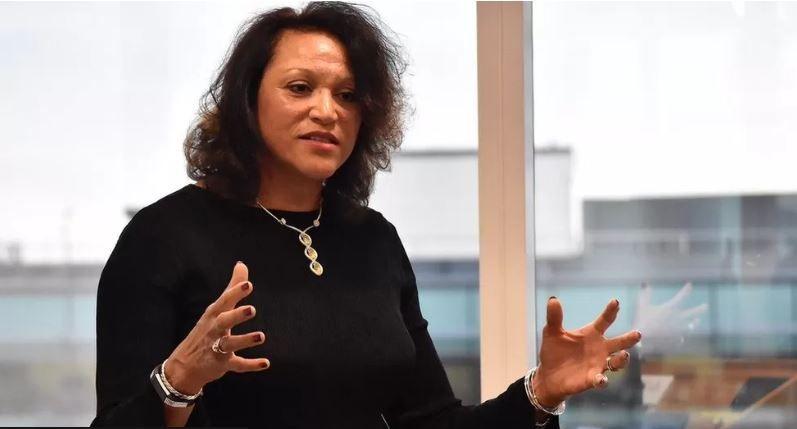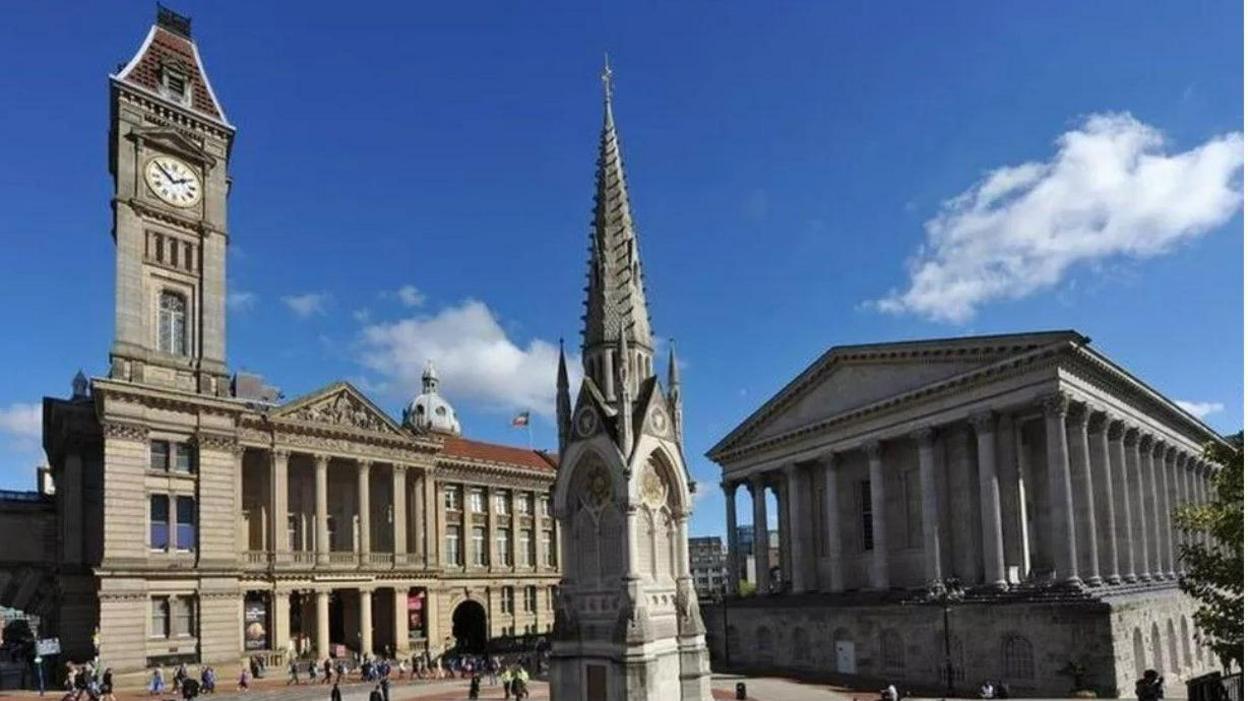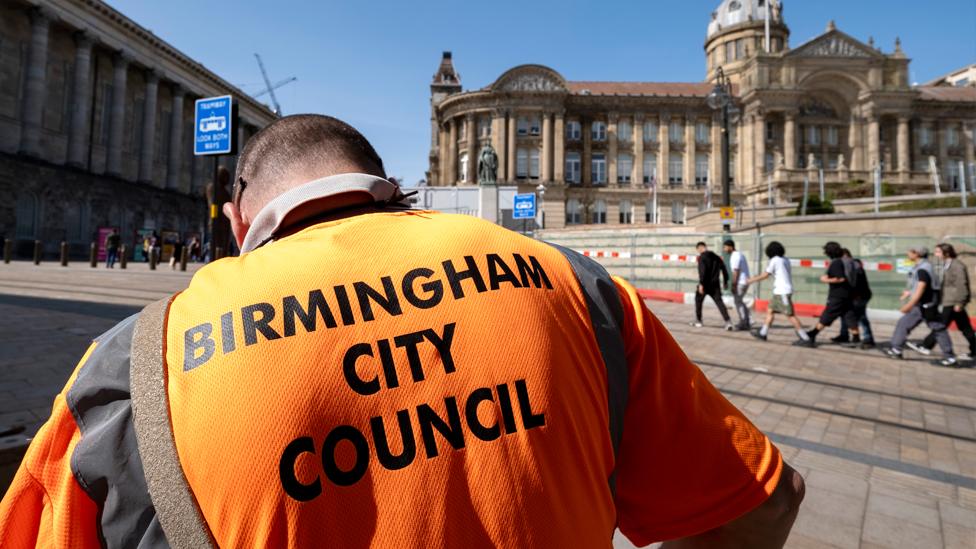Selling everything 'a trap' - Birmingham Council boss

Deborah Cadman said Birmingham City Council "must not fall into the trap of just selling everything"
At a glance
The chief executive of Birmingham City Council has said the authority "must not fall into the trap of just selling everything" after it effectively declared itself bankrupt
Deborah Cadman told a meeting it was important to properly assess the value of different assets
A joint public letter from Historic England, Arts Council England and the National Lottery Heritage Fund called for Birmingham's heritage and culture to be protected
- Published
Birmingham City Council "must not fall into the trap of just selling everything" as it grapples with a £760m bill for equal pay claims, its chief executive has said.
It was important to properly assess the value of different assets and the impact they had on the city's economy, Deborah Cadman told the authority's Finance and Resources Overview and Scrutiny Committee.
The council effectively declared itself bankrupt on 5 September, prompting speculation it could sell off land and buildings as it struggled to balance its books.
The government announced last week commissioners would be brought in to oversee the authority amid the financial crisis.

Birmingham Museum and Art Gallery was one of "the precious, publicly-owned places that play a central part" in the city's story, organisations said
On Thursday, the secretary of state for Levelling Up, Housing and Communities, Michael Gove, told the BBC that commissioners would proceed with care and "not want to see Birmingham diminished anymore than it already has been".
'Precious places'
Historic England said it had, along with Arts Council England and the National Lottery Heritage Fund, called on Ms Cadman and incoming commissioners to ensure the city's heritage was "preserved and prioritised" in discussions about the future.
In a joint public letter, the organisations said one of "our responsibilities as a society is to ensure that we pass our culture and heritage on to future generations in a better state than we found it".
Cannon Hill Park, Soho Foundry, Birmingham Museum and Art Gallery, Aston Hall, Moseley Road Baths, Highbury Hall, Sarehole Mill, Icknield Street School, Sutton Park and Symphony Hall were "some of the precious, publicly-owned places that play a central part" in the city's story.
Birmingham's "plentiful and varied civic heritage must not be forgotten", the letter stated.
Regional director for Historic England, Louise Brennan, said: "Heritage and the culture are the things that make Birmingham really unique."
Related topics
- Published28 September 2023

- Published19 September 2023

- Published17 September 2023
